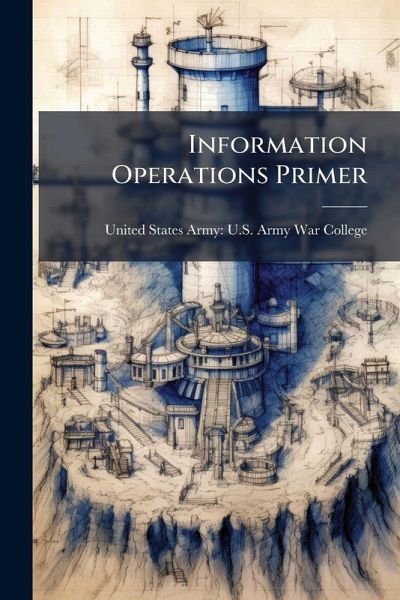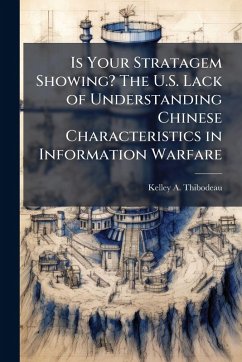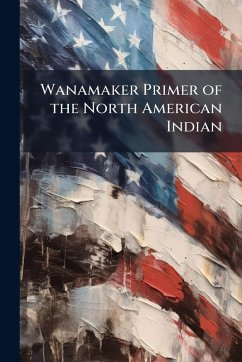
Information Operations Primer
Versandkostenfrei!
Versandfertig in über 4 Wochen
20,99 €
inkl. MwSt.

PAYBACK Punkte
10 °P sammeln!
The U.S. Army War College Information in Warfare Group Information Operations Primer for Academic Year 2012 includes new sections dedicated to U.S. International Strategy for Cyberspace, DoD strategy for Operating in Cyberspace, the Department of State Center for Strategic Counterterrorism Communications, the DoD Chief Information Officer, and the U.S. Army Cyber Command. This work has been selected by scholars as being culturally important, and is part of the knowledge base of civilization as we know it. This work was reproduced from the original artifact, and remains as true to the original ...
The U.S. Army War College Information in Warfare Group Information Operations Primer for Academic Year 2012 includes new sections dedicated to U.S. International Strategy for Cyberspace, DoD strategy for Operating in Cyberspace, the Department of State Center for Strategic Counterterrorism Communications, the DoD Chief Information Officer, and the U.S. Army Cyber Command. This work has been selected by scholars as being culturally important, and is part of the knowledge base of civilization as we know it. This work was reproduced from the original artifact, and remains as true to the original work as possible. Therefore, you will see the original copyright references, library stamps (as most of these works have been housed in our most important libraries around the world), and other notations in the work. This work is in the public domain in the United States of America, and possibly other nations. Within the United States, you may freely copy and distribute this work, as no entity (individual or corporate) has a copyright on the body of the work. As a reproduction of a historical artifact, this work may contain missing or blurred pages, poor pictures, errant marks, etc. Scholars believe, and we concur, that this work is important enough to be preserved, reproduced, and made generally available to the public. We appreciate your support of the preservation process, and thank you for being an important part of keeping this knowledge alive and relevant.












